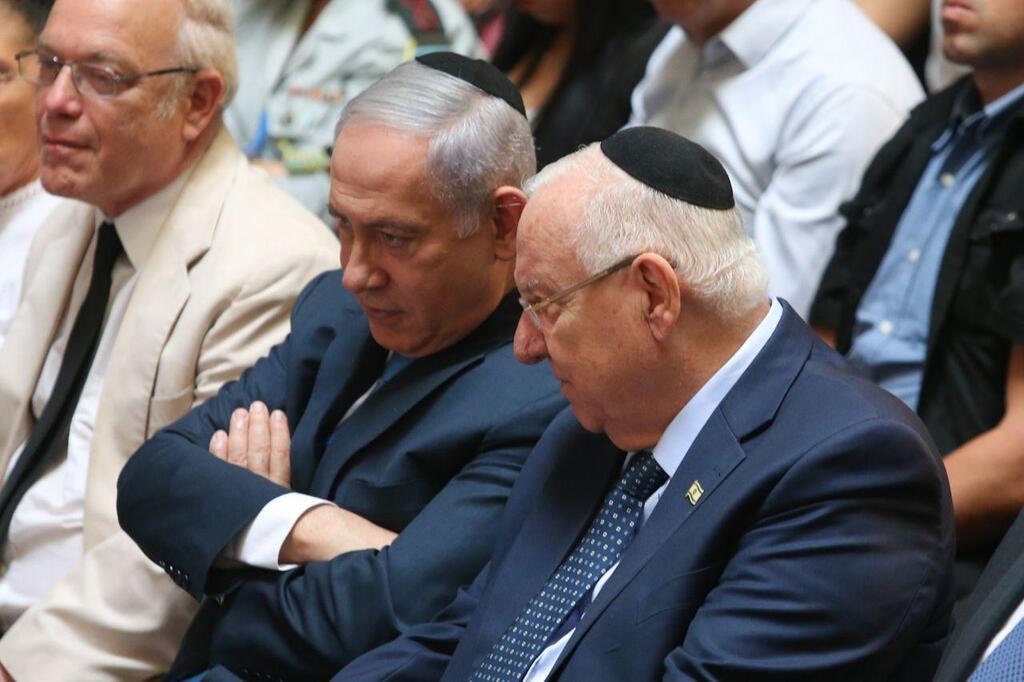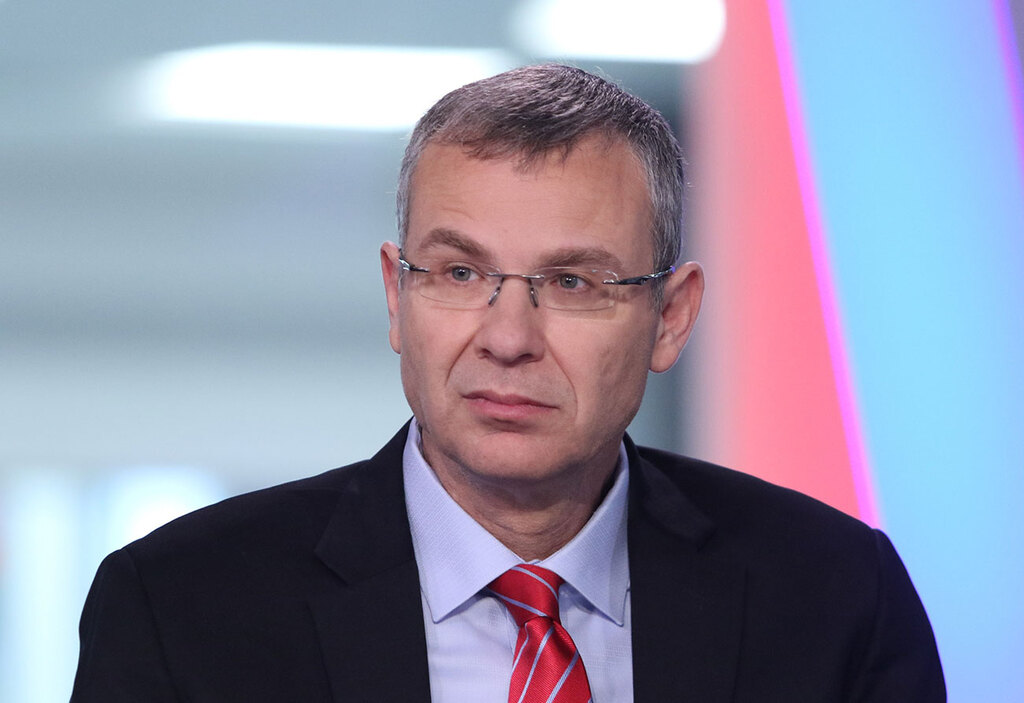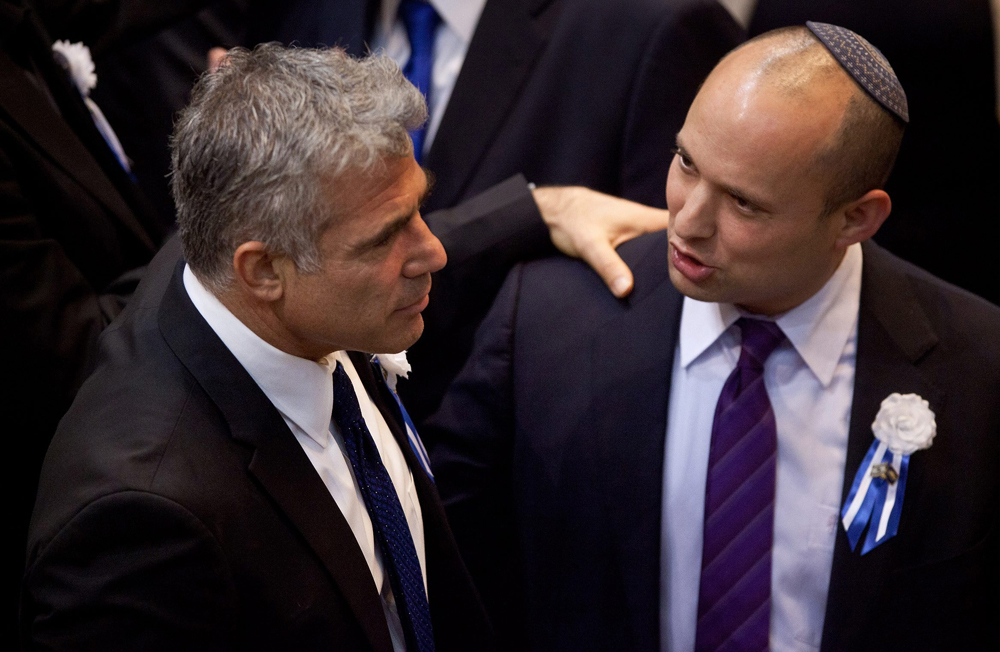Getting your Trinity Audio player ready...
Since the March 23 election, Prime Minister Benjamin Netanyahu's Likud party has been dead silent. They haven't been speaking to the media, conducting meetings quietly in an effort trying to formulate some sort of a strategy to allow the formation of a right-wing government supported by the Islamist Ra'am party.
This silence was broken Wednesday, and Netanyahu's quiet patience turned into a battle cry in order to be chosen as the one who gets the presidential mandate to form a government.
3 View gallery


Prime Minister Benjamin Netanyahu and President Reuven Rivlin during an IDF memorial service in 2019
(Photo: Alex Kolomoisky)
This change in Likud's strategy seems to have come following President Reuven Rivlin's statements earlier that day upon receiving the official election results. Rivlin said he will give the mandate to the lawmaker with the highest probability of succeeding, hinting that Netanyahu might be left behind.
It seems the president will not necessarily give the mandate to the candidate who manages to garner the most recommendations from other party leaders.
Senior Likud officials - including Knesset Speaker Yariv Levin and ministers Yuval Steinitz and Amir Ohana – were quick to condemn the president's remarks. "The president does not get to decide the results of the election. He is forbidden from becoming a political actor," said the officials in a statement.
In response, the President's Residence issued a statement in which it said it regretted the Likud bigwigs' remarks and doubled down on the initial message.
"The remarks directed at the president by ministers and Speaker of the Knesset are not respectful and it would have been better if they were not said," the statement read.
"As the president said, what will guide him in choosing the candidate is someone who has more chances of forming a government that will win Knesset's approval. This is what all previous Israeli presidents had done for generations and this is how the president acted in all the previous election campaigns."
Another scenario worrying Likud officials is if the lawmaker who initially gets the mandate fails in his task, Rivlin might immediately task the Knesset with forming a government and not give another candidate the opportunity.
If such a situation occurs, Netanyahu could find himself in a dangerous position. Yesh Atid leader Yair Lapid due to pressure might agree to a rotation agreement with Yamina chief Naftali Bennett, hence solidifying a new government.
The prime minister is working franticly behind the scenes to get Bennett, his former defense minister turned rival, to recommend him for the premiership. He will then move on to convince Ra'am leader Mansour Abbas to do the same
Various elements within Israel's right-wing are pressuring Bennett to not agree to any government not headed by Netanyahu, but the Yamina head has yet to proclaim his true intentions.
Pundits estimate that an outline for a rotation government between Bennett and Lapid is in the works – which will be the end of Netanyahu's rule. However, no talks have yet taken place between the two, other than a friendly phone call where both wished each other a happy Passover.
Another evidence for the pressure being put on Lapid to agree to rotation with Bennett was seen Tuesday in a tweet posted by New Hope chair Gideon Saar. He addressed the Yesh Atid chief in a very clear manner, saying: "I let go of my ego, now it is your turn."



